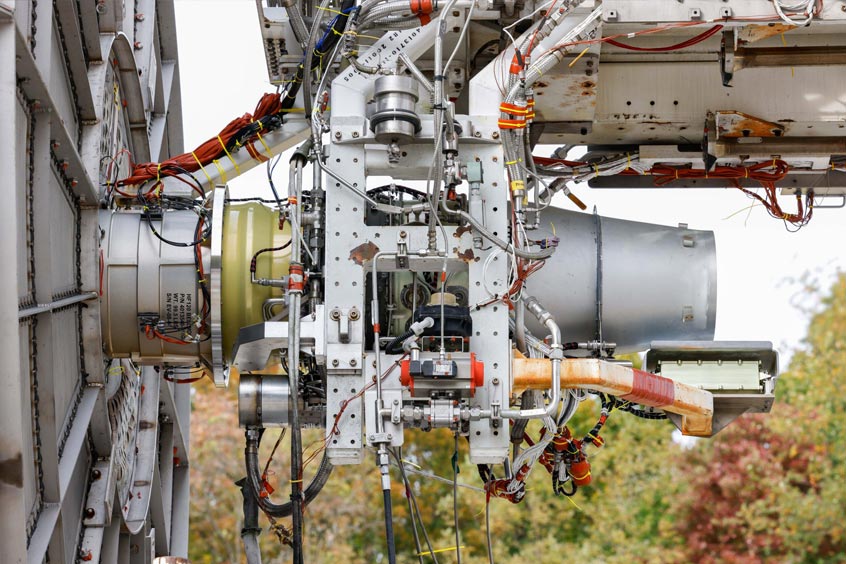Why visit ACE ’25?

GE Honda Aero Engines (GHAE) has successfully completed testing of its HF120 engine using 100 per cent sustainable aviation fuel (SAF), a synthetic jet fuel. Currently, the HF120 engine can operate on approved SAF blends up to 50 per cent, and this successful test demonstrates the capability of the engine to run on 100 per cent SAF.
The purpose of this test was to assess the performance of the engine technology with 100 per cent SAF compared to Jet A/A1. Ground testing was performed on an HF120 engine over several days at GE's Peebles test operations facility using HEFA-SPK (hydroprocessed esters and fatty acids synthetic paraffinic kerosene), the most widely available SAF, produced from plant-based used cooking oil, waste fats and greases. Test results are very favourable, with engine performance equivalent to Jet A fuel during the SAF run.
“As our testing shows, the HF120 engine can operate on approved SAF today and in the future. Our customers can be confident that the HF120 engine can help them meet their sustainability goals to reduce CO2 emissions in flight, thanks to the HF120's innovative design features,” says president Melvyn Heard.
“We are excited to share one of the steps GE Honda Aero Engines is taking toward carbon neutrality based on our belief that reducing our impact on the environment is not just an initiative, but an obligation,” adds executive vice president Shinji Tsukiyama. “In addition to the HF120's best-in-class fuel efficiency, future use of 100 per cent SAF on HF120 will further contribute to environmental sustainability.”
GHAE's parent companies, GE and Honda, are both part of distinct international efforts that seek to standardise industry specifications and ensure the safety of SAF.
The HF120 has already demonstrated itself to be the most fuel-efficient engine in its class, representing decades of research and development. Innovative aerodynamic designs, such as unique air blast fuel nozzles that yield superior fuel-to-air combustion, minimising fuel burn, and laser drilled combustor liner holes that enable optimum transfer of compressor energy to the turbine.
The company has appointed 4Air as the environmental offset provider for its customers, to provide them with access to comprehensive sustainability programmes that offset their environmental impact from flight emissions.
“As part of our sustainability strategy, we are committed to working for and with our customers to help them achieve their own sustainability goals,” says Heard.
With 4Air, GHAE can provide competitive levels of carbon offset commitments for customers to compensate for today's emissions. As private aviation continues to grow, environmental offset commitments are going to be necessary to meet industry and global climate goals.
GHAE customers are now able to leverage important carbon offset programmes such as in forestry and renewable energy, to make meaningful commitments to reduce emissions equivalent to those emitted from flying.
4Air offerings include:
- Carbon Neutral: carbon offsets (or carbon credits) that balance the emissions of one activity with the verified emissions reductions from a carbon offset project. These reductions reduce one's net footprint to zero or 'carbon neutral', but are not direct reductions of one's footprint.
- Emissions Neutral: the combination of a carbon neutral programme with the use of verified carbon offsets to offset the carbon equivalent footprint of non-CO2 emissions. These conversions are done using emissions indexes.
- Beyond Neutral: the combination of an emissions neutral programme with the use of SAF to achieve emissions reductions in aviation.
- Climate Champion: the combination of a beyond neutral programme in addition to making a pledge to the Aviation Climate Fund, which is designed to support research that supports sustainable aviation technologies and improved operations.